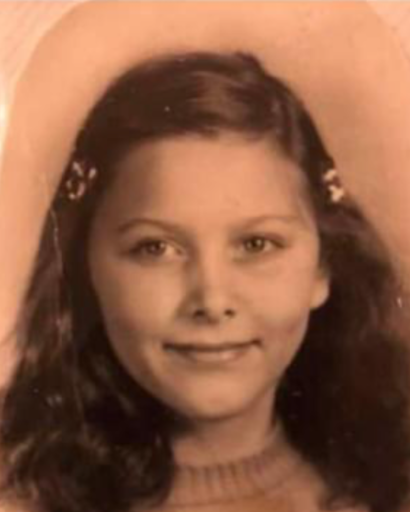

Elizabeth Ann Murphree
March 13, 1939 — August 31, 2023
Cottage Grove
Elizabeth Ann Murphree
Some of her last words were, “Where are my babies?” Even in her last moments, Elizabeth Ann Johnson Murphree was thinking of her children. It was her purpose in life, something she often questioned, but she was meant to be a mother. In fact, in one of the last conversations she had with her son, Carl, she said, “I think I will be a mother again.”
Her babies were all around her during her passing. They were all there: her daughters and sons, her grandchildren, great grandchildren, and a great-great grandchild. Her son in-laws and daughter in-laws, who she took in as her own, paid their respects and cried within her presence. At some point, she got to see them all in her last days and feel their love through their hugs and touch. It was her legacy. Everyone she created sat next to her, pleading their love until her last breaths.
Her hands were wrinkled and sometimes appeared stained by Alabama mud and hard work. She had scars that dated back to being a little girl running through the southern countryside, scraping her knees from climbing trees, riding the wagon with her daddy, and picking cotton to help pay for food. It was the foundation of what was to come, a life of hard work, a dedication to the task at hand that surpassed most, and is often unheard of these days. She never let a lack of education stop her because it wasn’t something she could control. She started raising babies at seventeen, and that doesn’t allow for diplomas. Instead, she raised her children and worked her way into leading others in working jobs that were traditionally meant for men. As her oldest son said while he bent over her body, “She was an original ceiling breaker.” She took pride in whatever she did and tried her best to instill those same values in her kids.
She was born a daughter to southern parents and the south laid a foundation in her to tell its stories that could not be told north of the Mason-Dixon line. She told them of her Uncle Curtis and how he used to throw her in the Tennessee River and yell, “Swim, hon.” It was how she learned, by doing. Her eyes saddened when she talked about her Aunt Vina being like a mother to her. Oh, how she loved her. Her daddy passed away in 1977 and his death nearly ripped her soul from her spleen. For years, she welled up in tears that eventually stained her shirt when she talked about him. He was lifted up high, a man that could climb a mountain peak in a single step. She made her children believe that God had sculpted him out of stone from Cheaha Mountain. She loved to tell stories of him riding the rails and playing baseball. She loved her mother without condition and did so until the day her momma passed. Her mother taught her how to roll dumplings and that the most important ingredient when cooking was love. She loved her sisters. So much so that her eyes either changed to sadness or joy when talking about them. Billie, the oldest, was someone she looked up to. They shared a history together. And Lynn, who she often said felt like one of her own. She loved Lynn as a sister, but cherished her as if she was her own child.
She talked about how difficult her life was, but not out of pity. Instead, she tried to make sense of it. However, when asked if she had more suffering or joy in her life, she said without hesitation, “Joy! My children and grandchildren have given me so much pleasure in my life. Loving them heals any pain.” That was who she was, a ferocious mother. She protected her children with all her might and allowed them to become who they would be. Her first was Patricia. She was only a teenager when Pat arrived kicking and screaming to get into this world. She used to tell her youngest, Chuck, during their conversations, “I knew when I had my first baby that I had someone to love and someone that would love me back.” She created love for herself. Charlotte came shortly after. Charlotte was a magical child, her “prettiest baby” she would always say, and she was. Charlotte was a blessing to her and the entire family. Charlotte’s passing in 2010 nearly took the life out of her lungs, losing a little of herself each time she mentioned her name. A parent should never have to lose a child. Terri came a few years later. She laughed when she said, “Terri came out talking and never stopped.” As her third child grew to a woman, they discovered from one another that they were much alike. They had a cherished bond that represented the power of love. Her son, Carl, came five years after Terri. He was named after her father-in-law. He was her first son, sensible and smart, and she raised him to be practical and a leader, much like she was. We all take on traits from our parents. She gifted Carl her ability to lead as well as her incredible work ethic. Her last child came along a couple of years later. They named him, Charles, after his dad. She often called him her “wild boy.” They had conversations that allowed both of them to dream of different worlds, and they shared a love of words.
Some of her kids had children and when the grandkids walked into the room, it lit a fire in her eyes. They all have her blood running through them, which she took pride in. You can find features of all her relatives in each grandchild. They are her. “Their roots all run deep,” she would say. She saw her granddaughters dancing at her Celebration of Life, and for a moment, she was young again with strong legs. The urge was there to stand from her wheelchair and dance with them. She had the same light in her eyes when her granddaughter leaned down to tell her goodbye one last time. She nearly lifted herself from the bed that she was confined to and hugged her with all the energy she could muster. She watched her until she walked out of the room and then laid her head back on the soft pillow, realizing it was time to start letting go. A grandson was often by her side, giving her comfort and strength. She would say to him, “You are a mix of your father and uncle,” something that made her proud. She held the hands of other grandkids as they came to visit from near and far. Even though her eyes were closed forever and her breathing became labored, she knew they were there. She remembered her talks with them and their voices brought comfort to her failing body. She knew the warmth of each of their hands and the softness in each of their voices. She loved them all. They are a part of her. She died knowing that she was loved and would be for generations to come.
She was a woman that loved animals and had many pets as a young girl, a pig being one of them. Nature and animals gave her comfort up until the day she died. All of her animal friends will meet her in heaven and walk the tall grasses by her side, except now she will have strong, mobile legs that will carry her far. Her family owes a debt of gratitude to her dog, Dixie, her main caregiver during her fight with cancer. Dixie came to her right before her diagnosis and had been a godsend ever since. A smart and witty dog, small in stature, but giant with love. Dixie’s love kept her going on most days. “We don’t deserve dogs,” she would often say. “They are better than us.”
With all that she had done as a mother, a loyal daughter, and hard worker, these weren’t all that defined her. She was also a poet and a painter. She found the love of words early on as a way of expressing her pain. She would tell people, as if it were a warning, “My poems are dark.” Yes, many of her poems were dark, but her words bled truth on thin paper and the blood often soaked deep enough that it healed the wounds and scars that formed on her arms and mind. She was often hesitant to share her poems and would tell her youngest about her fears. She would agree with his reply, “What do we have if we don’t have our truth? Tell it the way you see it and you can’t go wrong. Be honest with yourself. Be truthful in your writing.” She was honest and her life’s agony sang out like a Dylan song, as she bared her soul, attempting to make sense out of her eighty-four years. The words helped her pick herself up and heal the wounds that her life sliced open. It is all there in her verses, what was on her mind and the battles that she faced head on. She left it all on the page in front of her and never compromised herself when doing so. She told her truth and hoped others would understand. If anyone wanted to truly know her, if they dared to enter her personal history without judgment, it was in her poems and her paintings.
She painted great landscapes and prairie meadows. She painted Alabama fields and the heartaches that came with working them. She painted her memory, her life on display. It started as an empty canvas that she filled up little by little, year after year. All of the joy and heartache of living a full life was placed there, for all of her children, grandchildren, great grandchildren, and the world to see. Yes, she was a mother, but she was also an individual who absorbed life fully. She drank in all the pain and joy, the suffering and happiness, and all the love that she could.
Her last words were asking for her babies. She was a mother, not without flaws, but a damn good mother who was as strong and resilient as a mountain. Her voice is like an echo that will last a million lifetimes, and her southern drawl will stay with all that were wise enough to listen. In her words, that dripped slowly and intentionally from her mouth, was life. The words were given to all that surrounded her. If they were good students, if they listened with both ears and absorbed her teachings, the key to surviving life is there. The lessons were taught to everyone who was in her presence and listened with intent. She wrote the book on grit and resilience. Those are two characteristics that will allow everyone to meet life’s challenges head on, smile at them, and enjoy the rest. She modeled those traits, which is what a good teacher does.
Her eighty-four years were extraordinary. They were made from love. Love she gave and love she received. We can all be so lucky to live a life like that.
Elizabeth Ann Johnson Murphree has moved on now, and with her determination, it is certain she will do what she said, “I will be a mother again.”
Dear mother, you can rest now. Charlotte is there to take you home.
Please take a moment to share your thoughts and condolences in the online guest book.
Cress Funeral & Cremation
1310 Emerald Terrace
Sun Prairie, WI 53590
(608) 837-9054
Guestbook
Visits: 968
This site is protected by reCAPTCHA and the
Google Privacy Policy and Terms of Service apply.
Service map data © OpenStreetMap contributors





